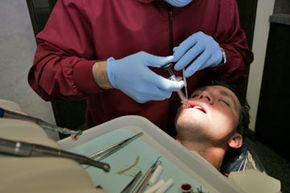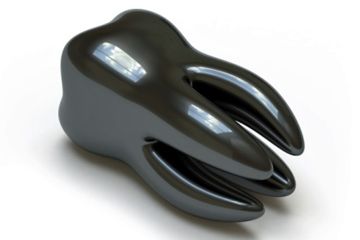The medical name for an abscessed tooth is a dentoalveolar abscess, but sufferers spell it p-a-i-n. An abscessed tooth is an infection that leads to swelling and a buildup of pus -- which, in turn, stimulates the nerve in that tooth. It's enough to make you howl out in agony or, at the very least, feel very uncomfortable. Here's the irony: If you wait long enough, the pain will go away, but it doesn't mean the problem is gone. It simply means the nerve has died. You may be rid of some short-term unpleasantness, but the infection is progressing and can further threaten your health. The infection can even spread to other places in the body like the jawbone or neck [source: Drugs.com]. An abscessed tooth requires treatment, not only to rid of you of the pain but also to protect your greater health.
Several things can lead to an infection, but the biggest issue is poor dental hygiene. If you get a cavity and leave it untreated, bacteria can enter through the opening in the tooth. Some diseases or treatments for diseases -- chemotherapy is one -- can also create an abscess. A tooth that's been cracked or broken in an accident can also become infected [source: Balentine]. Essentially anything that leads to a crack in the enamel of a tooth has the potential to create an infection.
Advertisement
Regardless of where it came from, an abscess is something you want to eliminate rather than cope with. You can distinguish an infection from a minor tooth ache by answering a few important questions:
- Are your gums swollen and sore?
- Is there a funny taste in your mouth?
- Is there drainage from a sore?
- Are you running a fever?
- Does it hurt to chew?
- Is your tooth sensitive to hot or cold?
If you have a combination of any of those symptoms, you need to get treatment [source: WebMD]. Treatment may come in the form of a home remedy or it may require medical attention. The degree of the infection's progression can also determine what course of action to take.
We'll take a look at some remedies on the next page.
Advertisement


